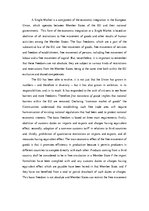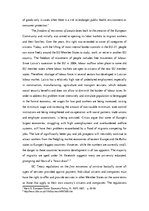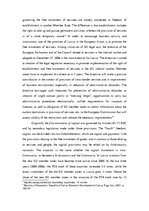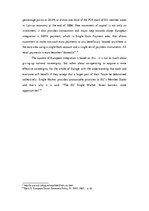A Single Market is a component of the economic integration in the European Union, which operates between Member States of the EU and their national governments. This form of the economic integration or a Single Market is based on abolition of all restrictions to free movement of goods and other results of human activities among the Member States. The four freedoms, which are a part of the substantive law of the EU, are: free movement of goods, free movement of services and freedom of establishment, free movement of persons, including free movement of labour and a free movement of capital. But, nevertheless, it is important to remember that these freedoms are not absolute, they are subject to various kinds of restrictions and reservations from the Member States, being at the same time both within the EU exclusive and shared competences.
The EU has been able to evolve, it is not just that the Union has grown in numbers – and therefore in diversity – but it has also grown in ambition, in its responsibilities, and in its reach. It has responded to the wish of citizens to see fewer barriers and more freedoms. Therefore free movement of goods implies that national barriers within the EU are removed. Declaring “common market of goods” the Communities understood that establishing such free trade area will require harmonization of existing national regulations that had been used to protect national economic interests. The basic freedom is based on three main requirements, firstly, abolition of customs duties on imports and exports and charges having equivalent effect, secondly, adoption of a common customs tariff in relations to third countries and, thirdly, prohibition of quantitative restrictions on imports and exports, and all measures having equivalent effect. …
Single, Common Market Four Basic Freedoms (goods, people, services, capital) and their Integration Effect A Single Market is a component of the economic integration in the European Union, which operates between Member States of the EU and their national governments. This form of the economic integration or a Single Market is based on abolition of all restrictions to free movement of goods and other results of human activities among the Member States. The four freedoms, which are a part of the substantive law of the EU, are: free movement of goods, free movement of services and freedom of establishment, free movement of persons, including free movement of labour and a free movement of capital. But, nevertheless, it is important to remember that these freedoms are not absolute, they are subject to various kinds of restrictions and reservations from the Member States, being at the same time both within the EU exclusive and shared competences.




